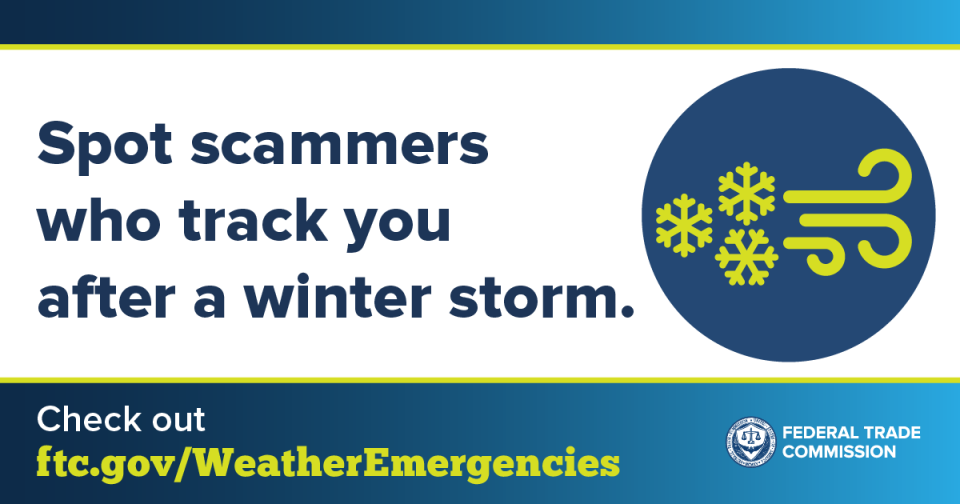With all eyes on the severe weather moving around the country, scammers are paying attention, too. And they’re likely following the path of the storms to target the people affected. So, how do you protect yourself against weather-related scams?
Weather emergencies mean big bucks for scammers and unlicensed contractors. They’ll appear right after a storm and offer to get your power back on, make essential repairs, or help with whatever you need. But if you pay them, they’ll take your money and disappear, charge you for things you don’t need, or leave before completing the work you paid them to do.
To avoid scammers trying to take advantage of you after a storm:
- Spot utility imposter scams. Utility imposters work year-round, but after a storm, they might call or knock on your door saying they need to repair or replace equipment. Then they’ll ask you to pay. Don’t pay them. That’s a scam.
- Hire only contractors who are licensed and insured. Check with your state or county government to confirm a contractor’s license. Ask the contractor for proof of insurance and a written contract.
- Never pay in cash. Paying by credit card offers you some protections. And only pay in full after the work is done and you’re satisfied with it.
- Read about other weather-related scams at ftc.gov/WeatherEmergencies. Then share the information with friends and family to help them avoid losing money, too.
Suspect a scam? Tell the FTC at ReportFraud.ftc.gov.


I understand what you say thank you
Thanks
Great information